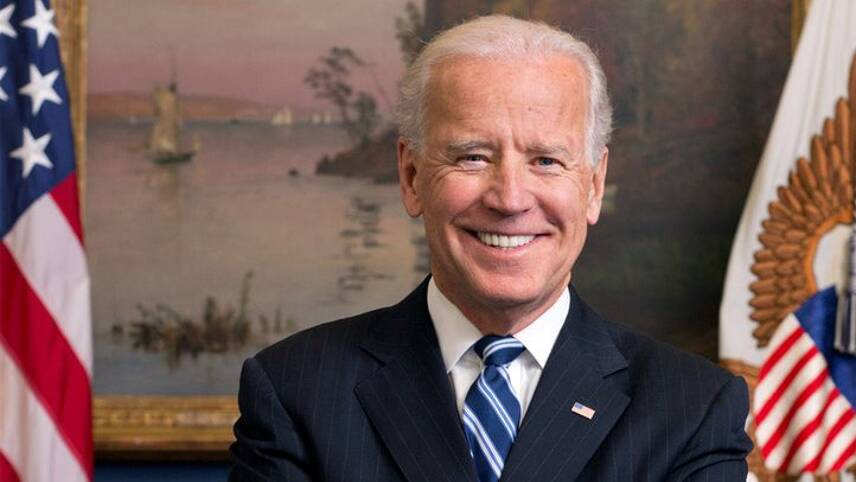Register for free and continue reading
Join our growing army of changemakers and get unlimited access to our premium content

Image: Official White House Photo (public domain)
The first few hours of Biden’s presidency were nothing short of an upheaval. In just fours hours, the Biden Administration sought to make-good four years of environmental negligence steered by former president Donald Trump.
Biden has officially submitted, via the UN, the US back into the Paris Agreement, a move which will come into force in 30 days. In addition to re-joining the global accord, Biden has also issued and widescale executive order examining Trump policies, with federal agents tasked with to address those that renegade on environmental protection.
New orders have also been issued to reverse a relaxation on methane pollution limits for existing oil and gas projects that were introduced by Trump, a permit for the controversial Keystone XL Pipeline has been cancelled, and bans have been put in place on new oil and gas permits on public land, including the Arctic National Wildlife Refuge. The US Government procurement system – worth $500bn annually – will also be revamped to focus on the purchase of clean energy and zero-emission vehicles.
Not bad for half a day’s work.
The announcements are profound, largely due to the ripple effect it will create in the global climate movement, both at a political level and a societal one.
First, let’s dispel a myth-turned-meme. By re-entering the Paris Agreement, Biden does not care more about the “citizens of Paris than he does the citizens of Pittsburgh”. For starters, Pittsburgh and many other US cities publicly backed the Paris Agreement back in 2017, when Trump kickstarted his withdrawal process. But more importantly, by agreeing to a global effort to combat the climate crisis, the US is in a position to not just protect its citizens from future climate-induced threats, but drive a more prosperous and thriving global society through the lens of the green recovery.
More impressive is the speed in which Biden and his team have moved to restructure from the ashes of the divisive Trump administration.
Following four years on environmental ignorance, Biden moved swiftly to appoint former Secretary of State John Kerry in a new role of Special Climate Envoy. The President has also named Gina McCarthy and Ali Zaidi as National and deputy Climate Advisors, again both new positions.
Four years under Trump has seen the US renegade on key global climate commitments, while also whitewashing mentions of climate change and stripping back existing national environmental legislation. In fact, research from Columbia University has found that the Trump Administration has overseen the rollback of more than 160 regulations related to environmental protection. These range from product standards for energy efficiency to car fuel and methane emissions.
However, McCarthy noted that the new administration will reverse “more than 100” climate-related policies introduced by Trump. For sustainability professionals that feel they may be knocking on closed doors in getting the wider business to embrace change, Biden offers optimisation that change can be restructured, almost overnight.
It is a refreshing notion for green groups that Biden is willing to push climate legislation to new heights in the US. He is expected to convene an international summit on decarbonisation at some point this year, and has already hinted at a net-zero emissions goal for the US.
The global outlook on climate change is also much brighter now. Carbon Brief states that more than 60% of global carbon emissions will be covered by a net-zero ambition because of Biden’s climate commitments.
The UK’s COP26 President Alok Sharma, welcomed Biden’s inauguration, saying he “looked forward to working with our US partners on the road to COP26”. Partnership will be crucial to bridging an ambition gap that is shackling global efforts to alleviate the ecological and climate crises.
2020 drew to a close with a massive sigh of relief. Humanity has suffered at the hands of the coronavirus pandemic, and a new year brings renewed hopes. However, the end of 2020 also marked the moment that the Paris Agreement’s “ratchet mechanisms” were meant to be introduced. This was the point when nations were meant to submit more ambitious climate commitments, as the UK did with its 68% reduction target for 2030.
Carbon Brief notes that just 45 parties (although this also includes EU nations as one entity) have submitted raised ambitions as part of this mechanism process. In fact, just 28% of global emissions are covered by updated commitments to the Paris Agreement. The US and China, both late joiners to the net-zero movement, will need to submit raised climate plans.
One of the key voting points for Biden during his election campaign was a promise to ignite a green revolution in the US, under the mantra of a Green New Deal. Biden claims that his climate action plan could enable the world’s largest economy to reach net-zero emissions by 2050. The $2trn (£1.6trn) plan would see the US run on zero-carbon electricity by 2035, further scaling back the influence of the coal industry. Even under Trump, reports suggest that there are now 5,000 fewer coal sector jobs compared to when he was elected. Transport and the built environment would also be overhauled to align with a net-zero commitment.
This net-zero ambition, while not yet set in stone, could act as the framework to spur a radical market shift for low-carbon technology. As the world’s largest economy, the US’s eventual arrival to the low-carbon journey could slash the cost of renewables, battery storage and other innovative solutions that enable businesses and nations to invest in measures that deliver decarbonisation while spurring new economic markets.
Biden’s impact on the low-carbon economy was notable on day one. By the time COP26 arrives in November, the impact could be transformative.
Matt Mace



Joe Biden can be good for climate change issues but need to continue Trump’s policy of not going into wars. https://real-politique.blogspot.com/2021/01/will-bidens-america-start-new-wars.html